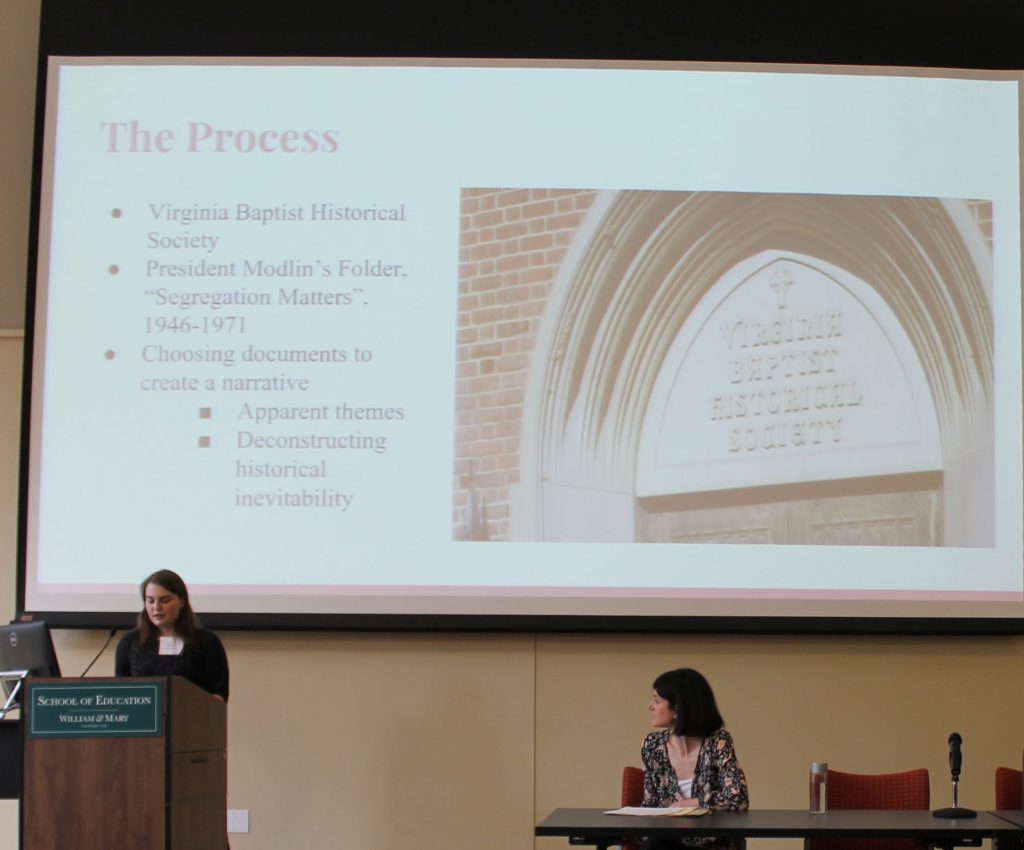[For the first blog post of the Summer 2018 A&S Research Fellowship, students were tasked with exploring the existing collection of the Race & Racism at UR Project at memory.richmond.edu and reflecting on the materials they encountered there.]
by Eden Wolfer
Eden Wolfer is a rising junior from Wilmington, Delaware. She is majoring in sociology and minoring in education. This is her first summer working for the Race & Racism Project and she is excited to learn from this experience.
PWI is short for “Predominantly White Institution” and is used to describe both modern day higher education institutions in which white students make up 50% or more of the student population, and to reference institutions which have been historically white, in contrast to HBCUs (Historically Black Colleges and Universities). (More on PWIs can be found in the Encyclopedia of African-American Education, 1996).
When I was starting to look at colleges, it was easy to look at the provided statistics about diversity and think that was enough. If there was a significant percentage of non-white students on campus that was all I could ask for from my school. My experience at college would not be affected by how people of color experienced campus, and obviously this is a very privileged position to be able to work from. Thinking about it now, two years into a sociology degree later, I am not sure why a 17 year old would think to look for information about the experience of students of color when we have been socialized into thinking a number of diverse students is enough to show a school is not racist.
If someone were to try and begin to look for the concealed racial history of the University of Richmond without knowing to look at the Race & Racism Project website, there are no easily found resources. The school website brushes over the history with integration and completely ignores the administration’s deep resistance. Overall, while attending this school little about its racially charged past has ever been brought to my attention outside of conversations with people involved in the Race & Racism Project at UR.

 On March 16, 2018, five undergraduate students who have worked with the Race & Racism at the University of Richmond Project had the opportunity to present at the Lemon Project Symposium at the College of William and Mary. The panel, entitled “Seeing the Unseen and Telling the Untold: Institutions, Individuals, and Desegregating the University of Richmond,” was moderated by Dr. Nicole Maurantonio and featured Dominique Harrington, Madeleine Jordan-Lord, Elizabeth Mejía-Ricart, Jennifer Munnings, & Destiny Riley. Below you will find the text and slide images of Madeleine Jordan-Lord’s presentation, focusing on the research she conducted while taking “Digital Memory & the Archive in the fall of 2016.”
On March 16, 2018, five undergraduate students who have worked with the Race & Racism at the University of Richmond Project had the opportunity to present at the Lemon Project Symposium at the College of William and Mary. The panel, entitled “Seeing the Unseen and Telling the Untold: Institutions, Individuals, and Desegregating the University of Richmond,” was moderated by Dr. Nicole Maurantonio and featured Dominique Harrington, Madeleine Jordan-Lord, Elizabeth Mejía-Ricart, Jennifer Munnings, & Destiny Riley. Below you will find the text and slide images of Madeleine Jordan-Lord’s presentation, focusing on the research she conducted while taking “Digital Memory & the Archive in the fall of 2016.”